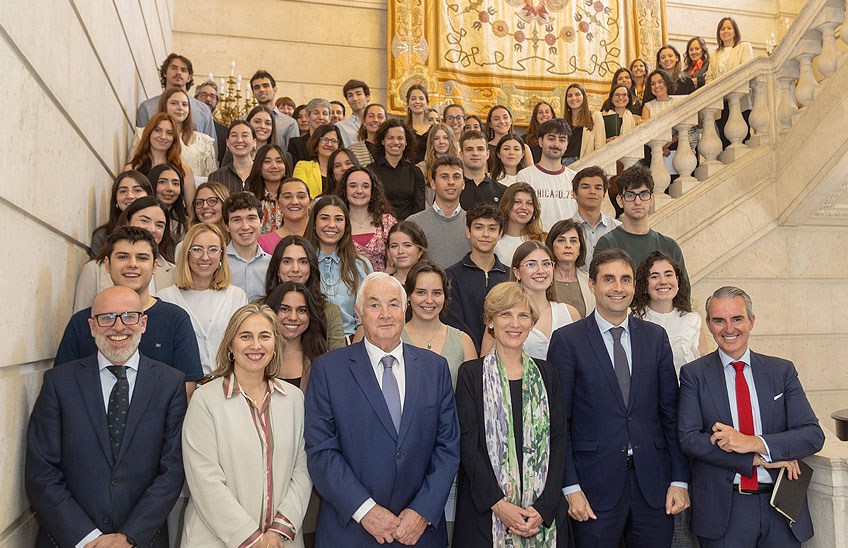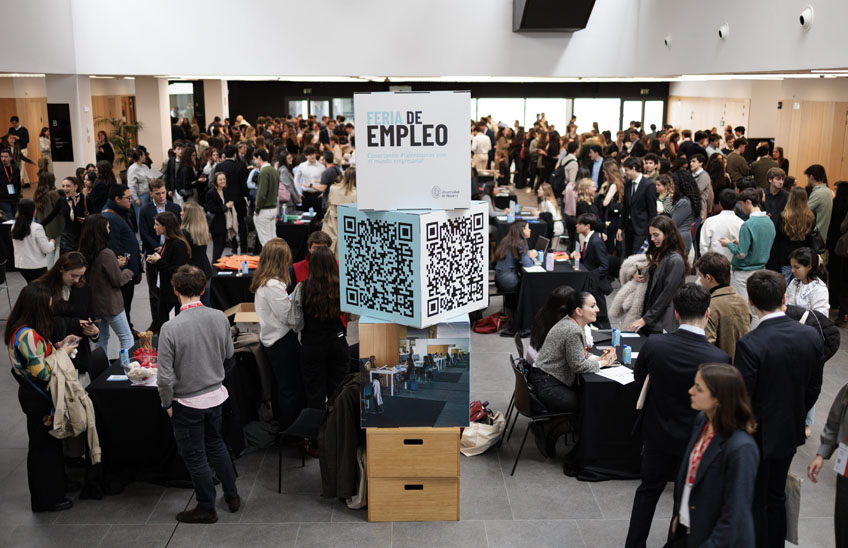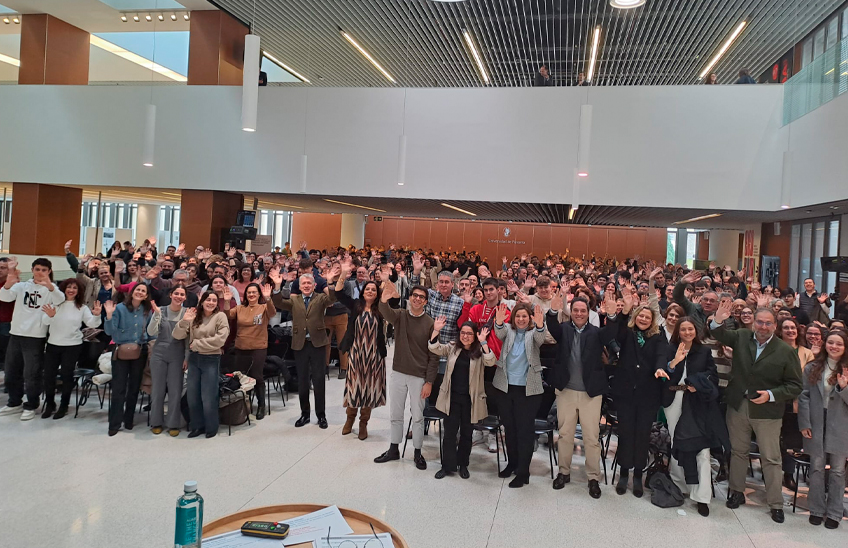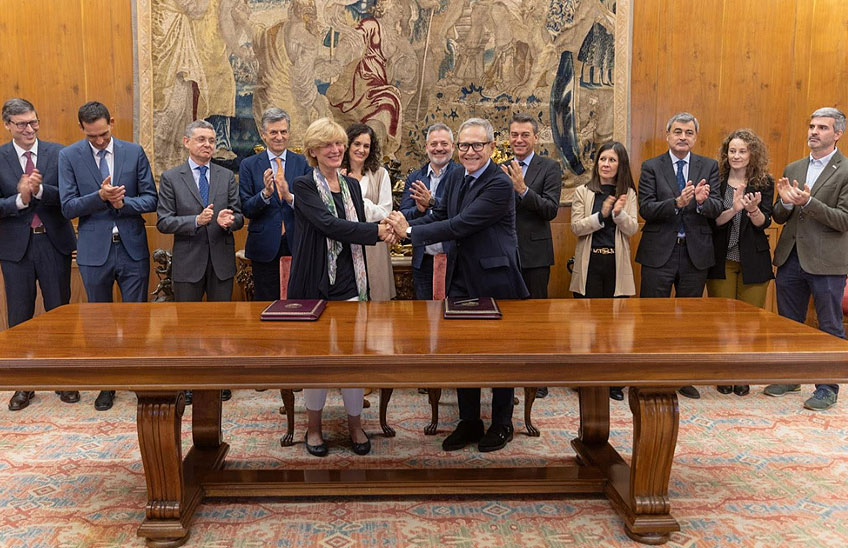"It is very important that Congolese women and doctors understand the importance of prevention."
Two University students travel to the Congo on a humanitarian trip to collaborate in a study of cervical cancer.
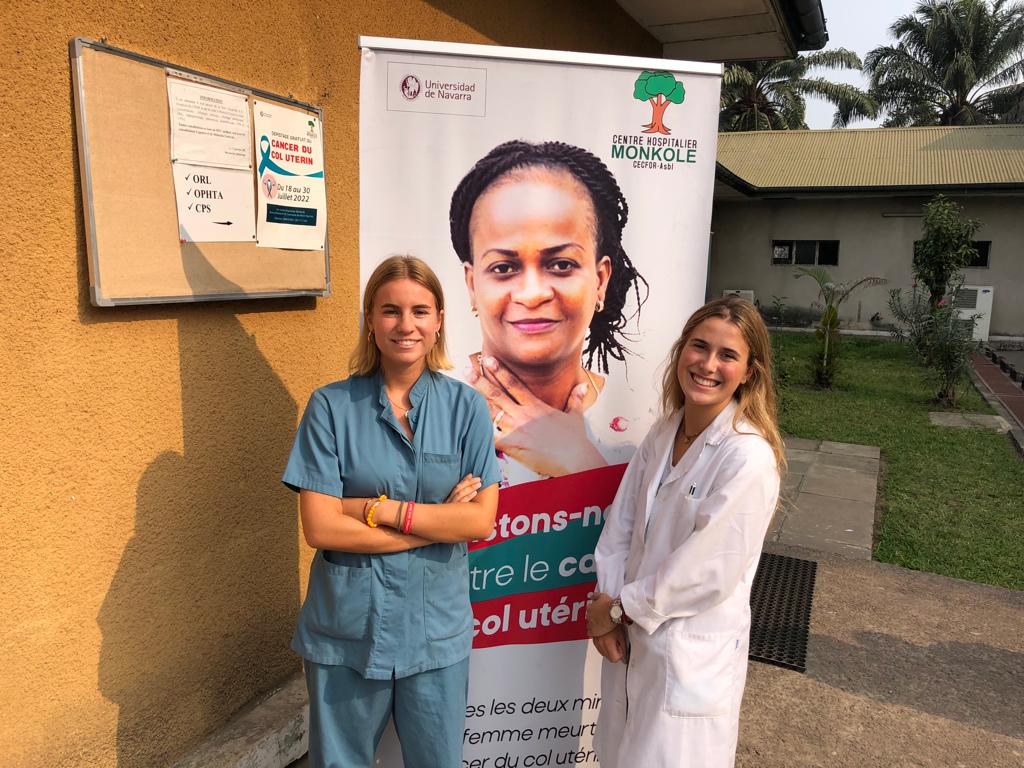
FotoCedida/StudentsMaría Hitos and Iranzu Etchepare, at the Monkole hospital where project is being developed.
22 | 07 | 2022
Iranzu Etchepare and María Hitos are two students from Pamplona University who have traveled to Kinshasa (Democratic Republic of Congo) to collaborate in a study on the prevention of cervical cancer in that country. The expedition (with the name Elikia) is to position of Dr. Luis Chiva, professor of the School of Medicine of the University and director of the department of Gynecology of the Clínica Universidad de Navarra. The trip aims to provide a prevention system to detect cervical cancer before it occurs and will also serve to give training to both the health professionals of the Monkole Hospital and the university students who have traveled.
María Hitos, 21, has just finished her third year in medicine and has traveled to the heart of Africa in the hope of helping with cervical cancer screening: "My vocation is medicine, but you can't practice it until you have graduate. That is why I have come on this trip: to collaborate and lend a hand". Iranzu Etchepare, 19 years old and in her second year of nursing school, explains the importance of the initiative: "The project results in saving lives. It is essential that these women come for screening. It is better to be treated for HPV today than to discover invasive carcinoma in the future, which is untreatable in the Congo," she says.
According to the students, the difficulty of project lies in the follow-up of the study over the years: "It's very easy to come here, stay two weeks and leave," Iranzu explains. "But what will really make a difference is the attitude of the local population. It is very important that Congolese women and doctors understand the importance of prevention."
"A rhythm of work"
The project implies training. In this way, the students are able to work with the doctors in Kinshasa and collaborate together. Since June they have been receiving screening classes at position from Dr. Chiva. "We arrived nervous the first workshop ─admits Maria─ but we already diagnose about 80 patients a day: a workrhythm." Near Monkole Hospital, the group Elikia has organized a enquiry that opens from eight o'clock in the morning and does not close until all the patients have been seen.
The Navarras admit to enjoying the trip and being very impressed with the reality of the Congo. "It is a very poor nation. But we have not stopped meeting people, Spanish and Congolese, who have spent years working hard for this country to move forward. Their generosity is impressive," concludes María Hitos.
Iranzu and Maria are part of the group group of students and professionals who arrived in Monkole on July 14. In Congo, along with 41 other countries, cervical cancer is the deadliest oncological disease for women. This cervical cancer screening project for which financial aid is needed ─at a cost of more than 70,000 euros─ aims to implement a prevention program. agreement This consists of locating patients with the Human Papilloma Virus (HPV) and treating them, since this pathogen is responsible for 90% of cervical cancer cases, according to the Center for Disease Control and Prevention (CDC).

